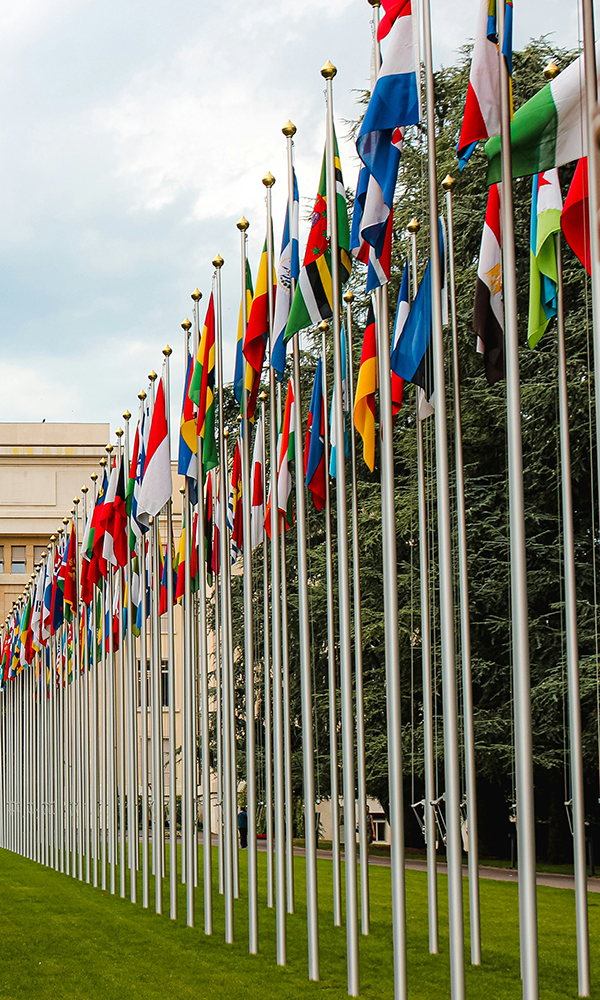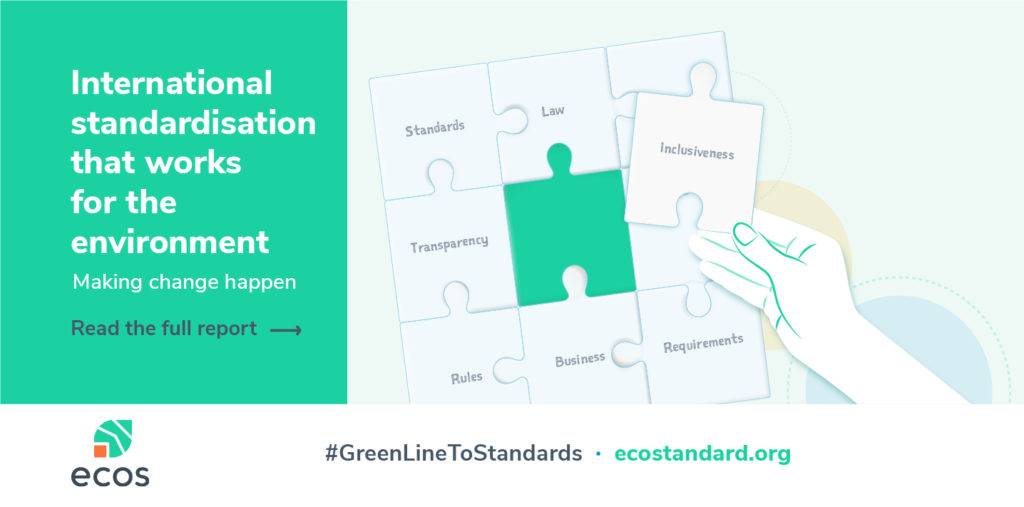We need global commitments to tackle global environmental challenges. International standardisation is an important mechanism for facilitating global trade, including in environmental goods and services. Many products are sold across international markets, making harmonisation of product characteristics and test methodologies around the globe beneficial, especially for industry, but also consumers. International standards contribute to spreading knowledge, sharing technological advances and management practices, increasing consumer safety, opening markets to safe use of new technologies, and reducing regulatory divergence. The standardisation system operates on an ‘international first’ approach to avoid barriers to international trade, meaning standards are – preferably – developed internationally and then adopted at national or regional level.
Other tools such as international environmental agreements and protocols led by supra-regional organisations are also on our radar. As global environmental challenges increase, international policies and standards are becoming an essential tool and ECOS is more and more present in their development.



The seventh session of the United Nations Environment Assembly (UNEA-7) will bring together all 193 UN Member States in Nairobi, Kenya in December 2025 to address common environmental challenges. Accredited NGO observers, including ECOS, will join them. What can we expect? We outline the environmental potential of two key resolutions: on sustainable use of AI and sound management of chemicals and waste.
ECOS has been approved as a liaison to ISO’s committee on consumer policy, also known as COPOLCO. In a world increasingly attuned to the importance of environmental protection and sustainability, the connection between consumer concerns and the environment is stronger than ever. Our new role at ISO will help to reinforce it – on a global scale.
To mark World Standards Day 2023, we are offering a closer look at three standards to demonstrate how ECOS maximises their potential to address environmental issues.
Since 2001 ECOS has been working to ensure an effective participation of environmental NGOs in standardisation, and a more inclusive standardisation system. Our job is, however, still far from done: we strongly believe that the way standards are developed can be significantly improved. An area that requires particular attention is the degree to which standardisation processes ensure inclusiveness of different types of stakeholders, including those representing the environmental voice.
Download the pdf


ECOS is co-funded by the European Commission and EFTA

 Funded by the European Union. Views and opinions expressed are however those of the author(s) only and do not necessarily reflect those of the European Union or EISMEA. Neither the European Union nor the granting authority can be held responsible for them.
Funded by the European Union. Views and opinions expressed are however those of the author(s) only and do not necessarily reflect those of the European Union or EISMEA. Neither the European Union nor the granting authority can be held responsible for them.
